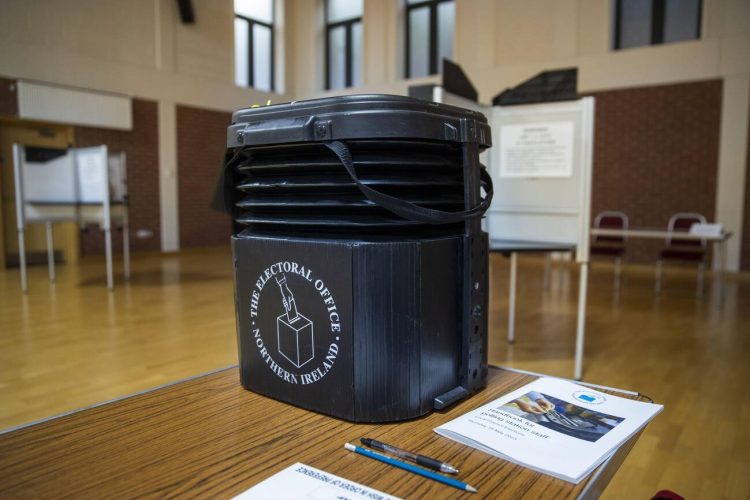Sinn Féin became Northern Ireland’s largest party in Westminster. Voters in Northern Ireland turned against the Democratic Unionist Party in a shock result. They made Sinn Féin the largest party in Northern Ireland. This article analyzes the Northern Ireland election results in 2024 and the political outlook of Northern Ireland after this election.
Northern Ireland election results in 2024
The counting of votes in Northern Ireland’s general election has ended after a dramatic night. Northern Ireland election results in 2024 show the defeat of the DUP. The DUP was shocked by the election results in Northern Ireland when Ian Paisley lost his seat in North Antrim. The party also lost Lagan Valley and South Antrim and was closely governed in East Londonderry. Meanwhile, Sinn Féin retained its seats and is the largest party. The party now leads the council, parliament, and Westminster elections.
DUP heavy defeat in general election
The DUP lost three of its eight Westminster seats in the July 4 election. They also lost, among other things, the North Antrim base held by Ian Paisley and his late father since 1970. The DUP had braced itself for a disappointing result, but this defeat severely shook the DUP’s position in Northern Ireland.
Sinn Féin wins seven seats in Westminster, Northern Ireland.
Sinn Féin is now the largest party across councils, the assembly, and Westminster in Northern Ireland. Northern Ireland election results in 2024 indicate this excellent victory for Sinn Féin. The nationalist party, which did not win seats in the House of Commons, has seven seats after the July 4 general election. Its leader, Mary Lou McDonald, said it was time to “prepare for a new future together on this island.” The party came out on top after a disappointing night for the DUP. The DUP had eight seats in 2019 and will return with five in 2024.
Sinn Féin’s stunning victory in the general election
Northern Ireland election results in 2024 showed a stunning victory for Sinn Féin. After retaining seven seats, Sinn Féin celebrated a hat-trick as the largest party in local government, Stormont, and now Westminster. Conor Murphy, the party’s Stormont economy minister, said the results showed an electoral trend supporting Irish unity. He asked all parties to discuss the future of the region’s constitution.
Sinn Féin’s increase in seats in the recent Northern Ireland election
Sinn Féin is not taking seats in Westminster because of its abstinence policy. While Sinn Féin’s share has increased since the last Westminster election in 2019, it has fallen slightly in recent Assembly and Council elections. This follows local and European elections in the Republic of Ireland last month, in which the party failed to make the significant gains many pollsters had predicted.
The joy of the parties of Northern Ireland after the victory of the Labour Party
Ireland’s Foreign Secretary Simon Harris congratulated Keir Starmer, saying a Labour government could promise a significant reset in UK-Irish relations, which Brexit has battered. He said: “The relationship between Ireland and the United Kingdom is deeply consequential for all people across these islands, and the relationship between an Irish Taoiseach and a British Prime Minister is vital.” In his view, successive Conservative governments have undermined the Good Friday Agreement, the legacy of Tony Blair’s prime ministership.
Internal disputes caused the DUP’s failure.
However, the DUP’s losses do not reflect nationalism’s gains. Rather, it is the divisions within Unionism that send the same number of MPs to Westminster. Paisley lost to Jim Allister of the Traditional Unionist Voice (TUV), a hardline minor challenger who left the DUP in charge of post-Brexit checks on goods coming from Great Britain. The margin, just 450 votes, was a psychological and symbolic blow to the party founded by Ian Paisley Sr. It used to be said that the DUP’s majority in North Antrim was heavy enough to be measured rather than counted. The DUP’s Paul Girvan lost to Ulster Unionist Robin Swann in South Antrim.
Differences and tensions in unionism
Nationalist political commentator Chris Donnelly, a former Sinn Féin election candidate, said the party had undoubtedly benefited from divisions within unionism. For years, the Democratic Unionist Party has faced infighting and pressure from smaller rivals over its handling of Brexit. Donnelly said the DUP had been the leading voice of unionism for decades but had turned unionism into a dead end.
Prospects for Irish unity with dramatic Sinn Fein victory
The combined vote share of Sinn Féin and the other leading nationalist group, the Social Democratic and Labour Party (SDLP), has remained more or less stable at around 40% since the Good Friday Agreement. Northern Ireland election results in 2024 were shocking. The electoral rise of Sinn Féin will inevitably lead to debate over any prospect of Irish unity. The growth of Sinn Féin has prompted other parties in the Republic to take the idea more seriously. So, the whole conversation about Irish unity has become much more mainstream than ever.





























